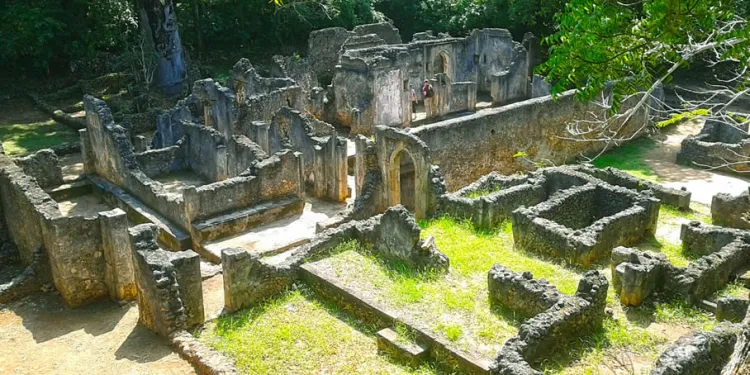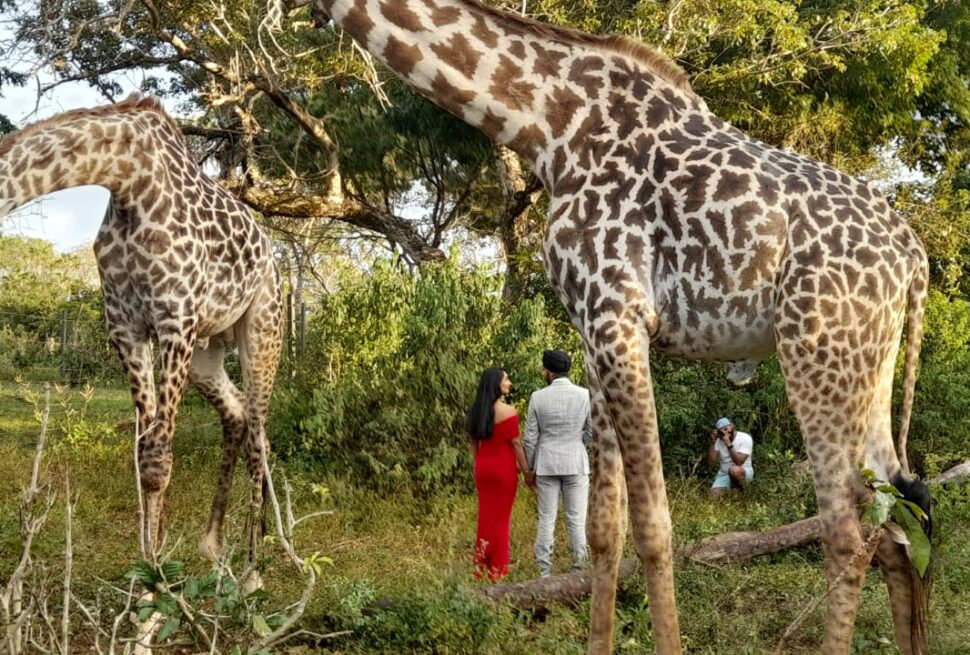Plans are underway to list the iconic archaeological Gede ruins in Kilifi County as a World Heritage Site under the United Nation Educational, Scientific and Cultural Organization (UNESCO).
Kenya National Commission for UNESCO (KNATCOM) Secretary General Dr Evangeline Njoka revealed that the site has been considered for the prestigious recognition after meeting key cultural and natural criteria developed by UNESCO for heritage sites.
In an exclusive interview, Dr. Njoka told Kenya News Agency that her office is working closely with UNESCO to fast track the process before official announcement.
“The process has been going on for a while. We are hopeful it will be concluded soon before the official notification,” she added.
Dr. Njoka observed that the move would further cement the 600 years old Swahili settlement ruins as one of key tourism destinations globally.
The ruins trace its origin in the 12th century with theories indicating the residents deserted their homestead due to battle between Mombasa and Malindi Arab rulers and attacks from the Orma Community raiders.
Dr Njoka said Gede Ruins had been on the tentative list of the areas of the country that had been proposed to UNESCO for the prestigious enlisting.
UNESCO enlist cultural or natural landmarks it deems worthy of preservation under World Heritage Sites lists due to their universal value to humanity to the current and future generations.
The International Council on Monuments and Sites outlined five steps to be followed before such sites qualify to be under World Heritage Site.
A UNESCO state party has to undertake an inventory of its important natural and cultural heritage sites and monuments and submit the list to UNESCO for inscription in the next 5 to 10 years for consideration by the World Heritage Committee.
The tentative list containing names of sites and monuments suggested by state parties are forwarded to the World Heritage Center, which also guides countries to collect water tight facts for the proposed sites to qualify for enlisting.
The center reviews the nomination file before forwarding it to advisory bodies comprising of representative of World Heritage Convention, the International Council of Monuments and Sites (ICOMOS), World Conservation Union (IUCN) and the International Center for the Study of the Preservation and Restoration of Cultural Property (ICCROM), for evaluation and consideration.
The World Heritage Committee looks into the list and makes a final decision on inscription of the proposed sites and monuments that must be of understanding universal value and meet one of the selection criteria.
Dr. Njoka noted that Gede ruins have met most of the stipulated criteria adding that her commission and Kenya National Museum of Kenya (NMK) have presented a strong case for it to be enlisted as the eighteen country’s World Heritage Sites.
“We have done a lot of paperwork to ensure the archaeological site which carries the rich history of our coastal communities is enlisted as the latest world heritage sites in our beloved nation,” she stressed.
KNATCOM collaborated with Africa Digital Heritage, a Nairobi based non-profit organization to undertake digital documentation of the ruins.
“Our approach to digitising Gede will look at preserving both the tangible and the intangible history. We want to document the structures as they appear today while situating the ruins in the context of present day community life,” stated the agency on its website.
The digitisation process involved 360 degree panoramic tours of the ruins, photographs of the site and artifacts in the ruins, videos interviews with local community among others.
The KNATCOM secretary general added that her commission and other partners will ensure sites and monuments with rich Kenyan history are protected and preserved for the posterity of the nation.
Kenya has four cultural sites namely Lamu Old town, Fort Jesus, Sacred Mijikenda Kaya Forests and Thimlich Ohinga Archeological site and three natural sites; Mount Kenya National Park Lake Turkana National Park and Kenya Lake system in the Great Rift Valley (Lake Bogoria, Lake Nakuru and Lake Elementaita) listed as World Heritage Sites by UNESCO.



